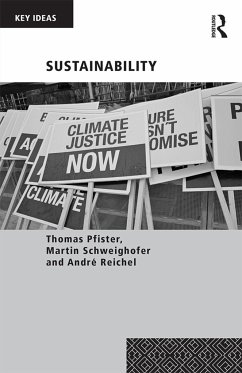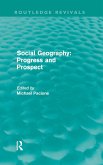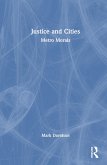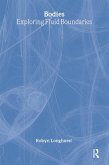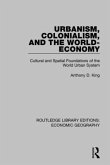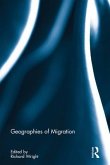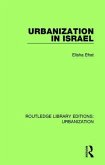- Gebundenes Buch
- Merkliste
- Auf die Merkliste
- Bewerten Bewerten
- Teilen
- Produkt teilen
- Produkterinnerung
- Produkterinnerung
Instead of providing a shopping list of textbook definitions of sustainability, the book will be a highly readable critical evaluation of the concept's evolution and use in politics, business and society.
Andere Kunden interessierten sich auch für
![Social Geography Social Geography]() Social Geography158,99 €
Social Geography158,99 €![Justice and Cities Justice and Cities]() Mark DavidsonJustice and Cities168,99 €
Mark DavidsonJustice and Cities168,99 €![Cool Places Cool Places]() Tracey Skelton (ed.)Cool Places76,99 €
Tracey Skelton (ed.)Cool Places76,99 €![Bodies Bodies]() Robyn LonghurstBodies238,99 €
Robyn LonghurstBodies238,99 €![Urbanism, Colonialism and the World-economy Urbanism, Colonialism and the World-economy]() Anthony D KingUrbanism, Colonialism and the World-economy165,99 €
Anthony D KingUrbanism, Colonialism and the World-economy165,99 €![Geographies of Migration Geographies of Migration]() Geographies of Migration179,99 €
Geographies of Migration179,99 €![Urbanization in Israel Urbanization in Israel]() Elisha EfratUrbanization in Israel160,99 €
Elisha EfratUrbanization in Israel160,99 €-
-
-
Instead of providing a shopping list of textbook definitions of sustainability, the book will be a highly readable critical evaluation of the concept's evolution and use in politics, business and society.
Hinweis: Dieser Artikel kann nur an eine deutsche Lieferadresse ausgeliefert werden.
Hinweis: Dieser Artikel kann nur an eine deutsche Lieferadresse ausgeliefert werden.
Produktdetails
- Produktdetails
- Verlag: Taylor & Francis
- Seitenzahl: 110
- Erscheinungstermin: 7. Juni 2016
- Englisch
- Abmessung: 206mm x 137mm x 13mm
- Gewicht: 272g
- ISBN-13: 9780415714112
- ISBN-10: 0415714117
- Artikelnr.: 43153758
- Herstellerkennzeichnung
- Libri GmbH
- Europaallee 1
- 36244 Bad Hersfeld
- gpsr@libri.de
- Verlag: Taylor & Francis
- Seitenzahl: 110
- Erscheinungstermin: 7. Juni 2016
- Englisch
- Abmessung: 206mm x 137mm x 13mm
- Gewicht: 272g
- ISBN-13: 9780415714112
- ISBN-10: 0415714117
- Artikelnr.: 43153758
- Herstellerkennzeichnung
- Libri GmbH
- Europaallee 1
- 36244 Bad Hersfeld
- gpsr@libri.de
André Reichel is a Professor for Critical Management & Sustainable Development at Karlshochschule International University in Karlsruhe, Germany. He holds a master's degree in Management and a doctoral degree in Economics and Social Sciences from the Universität Stuttgart. His main research interest is on degrowth and postgrowth with a special emphasis on microeconomic actors like companies and civil society organizations. More information about his work can be found at www.andrereichel.de. Thomas Pfister is Head of the EnergyCultures Research Group at Zeppelin University in Friedrichshafen, Germany. He holds a master's degree in Political Science, Sociology, Modern History from Ludwig Maximilian's University Munich and a PhD in Political Science from Queen's University Belfast. His main research interests are in the relationship between science, society, and politics, particularly with regard to sustainable development, energy transitions, and European integration. In particular, he is interested the epistemic dimension of governance in these contexts and its interaction with concepts and practices of citizenship. Martin Schweighofer is a Researcher at the EnergyCultures Research Group at Zeppelin University in Friedrichshafen, Germany. He holds a master's degree in Economics from the University of Vienna, has worked as a sustainability researcher and project manager for several years, and is now heading for his PhD in Sociology. His main research interests are in cultural transformations towards sufficiency and the respective dynamics of social practices, especially looking at the epistemic dimension. Currently he is doing research on the importance of social movements in the transition of energy cultures.
1. Introduction 2. Historical Reflection - A Brief genealogy of sustainable
development 2.1. Introduction 2.2. Imagining the World as Finite Ecosystem
and Livelihood in Need of Care 2.3. The Global Rise of Sustainability
- From environmental angst to equity to economics 2.4.The Contemporary
Fragmentation of Sustainability 3. Sustainability and Climate Change 3.1.
Introduction 3.2. Towards a Science of Climate Change 3.3. Dimensions of
Unsustainability 3.4. Climate Change as a Discursive Field 3.4.1. From
Science to Global Policy 3.4.2. The Controversy Around Climate Change
3.4.3. Towards the Dominance of Climate Change 3.5. Climate Change Between
Mitigation & Adaptation 4. Sustainability and Energy Systems 4.1.
Introduction 4.2. The Formation of Modern Energy Systems 4.3. Dimensions of
Unsustainability 4.4. Renewable Energies as a Response to Finite Resources
4.4.1. Limits to Energy Resources 4.4.2. Renewable Energy Without Limits
4.5. Safe Energy for Development 4.6. The Business Case for Sustainable
Energy 5. Sustainability and Food Systems 5.1. Introduction 5.2. The
Formation of Modern Food Systems 5.3. Dimensions of Unsustainability 5.4.
Ecological Agriculture as Caring for Nature 5.5. Agriculture, Food, and the
Quest for Equity 5.6. The Agricultural Green Economy 6. Sustainability as
Transformation and Reflexivity 6.1. Making Sense of the Essential Diversity
of Sustainability 6.2. Sustainability as Epistemic Commons and Experimental
Transformation 6.3. Infrastructures for Sustainability 6.4. Caring for
Sustainability, Caring for Transformation
development 2.1. Introduction 2.2. Imagining the World as Finite Ecosystem
and Livelihood in Need of Care 2.3. The Global Rise of Sustainability
- From environmental angst to equity to economics 2.4.The Contemporary
Fragmentation of Sustainability 3. Sustainability and Climate Change 3.1.
Introduction 3.2. Towards a Science of Climate Change 3.3. Dimensions of
Unsustainability 3.4. Climate Change as a Discursive Field 3.4.1. From
Science to Global Policy 3.4.2. The Controversy Around Climate Change
3.4.3. Towards the Dominance of Climate Change 3.5. Climate Change Between
Mitigation & Adaptation 4. Sustainability and Energy Systems 4.1.
Introduction 4.2. The Formation of Modern Energy Systems 4.3. Dimensions of
Unsustainability 4.4. Renewable Energies as a Response to Finite Resources
4.4.1. Limits to Energy Resources 4.4.2. Renewable Energy Without Limits
4.5. Safe Energy for Development 4.6. The Business Case for Sustainable
Energy 5. Sustainability and Food Systems 5.1. Introduction 5.2. The
Formation of Modern Food Systems 5.3. Dimensions of Unsustainability 5.4.
Ecological Agriculture as Caring for Nature 5.5. Agriculture, Food, and the
Quest for Equity 5.6. The Agricultural Green Economy 6. Sustainability as
Transformation and Reflexivity 6.1. Making Sense of the Essential Diversity
of Sustainability 6.2. Sustainability as Epistemic Commons and Experimental
Transformation 6.3. Infrastructures for Sustainability 6.4. Caring for
Sustainability, Caring for Transformation
1. Introduction 2. Historical Reflection - A Brief genealogy of sustainable
development 2.1. Introduction 2.2. Imagining the World as Finite Ecosystem
and Livelihood in Need of Care 2.3. The Global Rise of Sustainability
- From environmental angst to equity to economics 2.4.The Contemporary
Fragmentation of Sustainability 3. Sustainability and Climate Change 3.1.
Introduction 3.2. Towards a Science of Climate Change 3.3. Dimensions of
Unsustainability 3.4. Climate Change as a Discursive Field 3.4.1. From
Science to Global Policy 3.4.2. The Controversy Around Climate Change
3.4.3. Towards the Dominance of Climate Change 3.5. Climate Change Between
Mitigation & Adaptation 4. Sustainability and Energy Systems 4.1.
Introduction 4.2. The Formation of Modern Energy Systems 4.3. Dimensions of
Unsustainability 4.4. Renewable Energies as a Response to Finite Resources
4.4.1. Limits to Energy Resources 4.4.2. Renewable Energy Without Limits
4.5. Safe Energy for Development 4.6. The Business Case for Sustainable
Energy 5. Sustainability and Food Systems 5.1. Introduction 5.2. The
Formation of Modern Food Systems 5.3. Dimensions of Unsustainability 5.4.
Ecological Agriculture as Caring for Nature 5.5. Agriculture, Food, and the
Quest for Equity 5.6. The Agricultural Green Economy 6. Sustainability as
Transformation and Reflexivity 6.1. Making Sense of the Essential Diversity
of Sustainability 6.2. Sustainability as Epistemic Commons and Experimental
Transformation 6.3. Infrastructures for Sustainability 6.4. Caring for
Sustainability, Caring for Transformation
development 2.1. Introduction 2.2. Imagining the World as Finite Ecosystem
and Livelihood in Need of Care 2.3. The Global Rise of Sustainability
- From environmental angst to equity to economics 2.4.The Contemporary
Fragmentation of Sustainability 3. Sustainability and Climate Change 3.1.
Introduction 3.2. Towards a Science of Climate Change 3.3. Dimensions of
Unsustainability 3.4. Climate Change as a Discursive Field 3.4.1. From
Science to Global Policy 3.4.2. The Controversy Around Climate Change
3.4.3. Towards the Dominance of Climate Change 3.5. Climate Change Between
Mitigation & Adaptation 4. Sustainability and Energy Systems 4.1.
Introduction 4.2. The Formation of Modern Energy Systems 4.3. Dimensions of
Unsustainability 4.4. Renewable Energies as a Response to Finite Resources
4.4.1. Limits to Energy Resources 4.4.2. Renewable Energy Without Limits
4.5. Safe Energy for Development 4.6. The Business Case for Sustainable
Energy 5. Sustainability and Food Systems 5.1. Introduction 5.2. The
Formation of Modern Food Systems 5.3. Dimensions of Unsustainability 5.4.
Ecological Agriculture as Caring for Nature 5.5. Agriculture, Food, and the
Quest for Equity 5.6. The Agricultural Green Economy 6. Sustainability as
Transformation and Reflexivity 6.1. Making Sense of the Essential Diversity
of Sustainability 6.2. Sustainability as Epistemic Commons and Experimental
Transformation 6.3. Infrastructures for Sustainability 6.4. Caring for
Sustainability, Caring for Transformation

